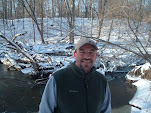Once you are done with formal schooling—high school or college or graduate school—scholarly exploration becomes an independent quest to most that are doing jobs outside of our passions. And what is considered scholarly is varied from person to person. Interests range from gardening to the physics of string theory to combat pistol training to needlepoint. Try to wrap your mind around all the possible interests you could or have explored. I would bet it was a wide and varied lot if you have any years on your skeleton.
Now throw the internet into the mix. With this resource at your disposal, knowledge is literally thrown by the bucketfuls in dizzying volumes, with a troubling mixture of truth’s and falsehoods mixed up like we would make soup.
When I was younger, and I needed to find the facts about a subject, I would simply look it up in an encyclopedia or dictionary or library reference books. From there if I wanted more you would have to seek out experts on the phone or museum or zoo depending on the subject. These books and people tended to carry the weight of truth in them, after all, I felt that the books were at the very least reviewed by peers before they would be published as a non-fiction work as printed on their book jacket. And the people must have been right more than they were wrong to hold their jobs and positions.
Teachers, clergy, books—I never thought to question them—and grew my knowledge based on trust, based on respected forms of authority.
But as of late, so much of society seems to not question what they read on the internet the way I never questioned what the Encyclopedia Britannica printed. Perhaps it is human nature to look very narrowly for answers—often looking for where we will find the answers to our questions that fit our suspicions or beliefs—like the little boy in the old Tootsie Roll Pop commercial seeking the answer to how many licks it takes to get to the center of the sucker.
Interestingly enough in the commercial, the boy ends up getting the answer to his question from the owl. But was it the truth. It was in a sense and it wasn’t in another sense. Also, why would we trust an owl? Interestingly enough, the owl was often depicted perched atop the helmet of the ancient Greek Goddess Athena. She was the goddess of wisdom, divine intelligence, architecture, crafts and warfare. How a goddess could hold both divine intelligence and warfare under a single shield does trouble me a bit.
And when I am troubled by something I question and seek. Someday I will find the wisdom that I seek and may be when I close my eyes for the last time and life's light is extinguished.






